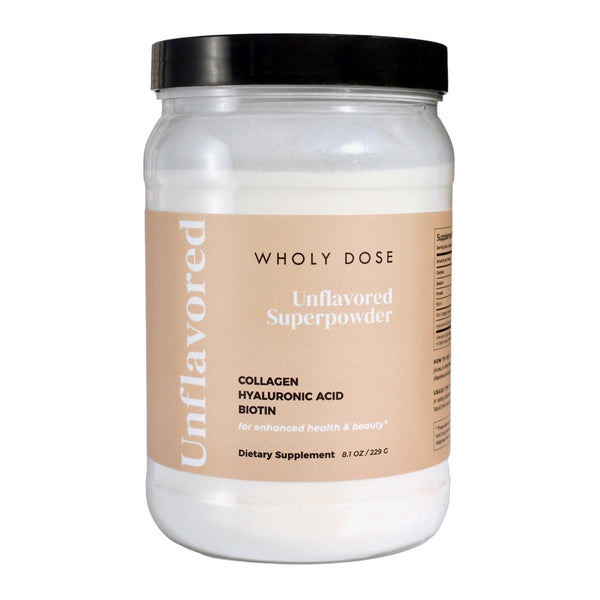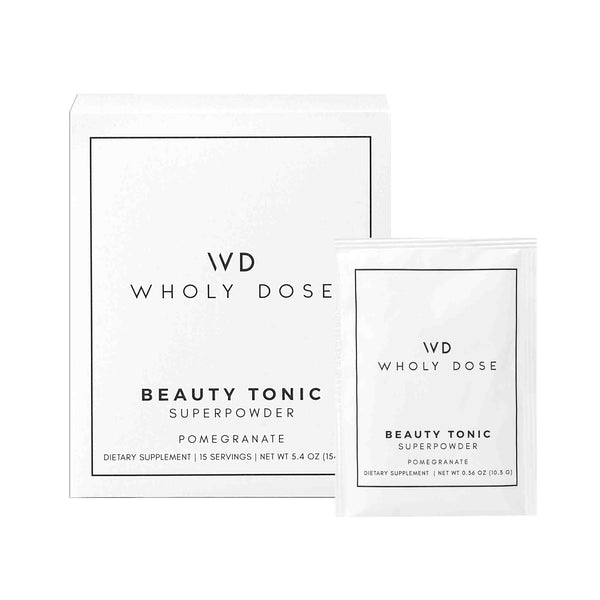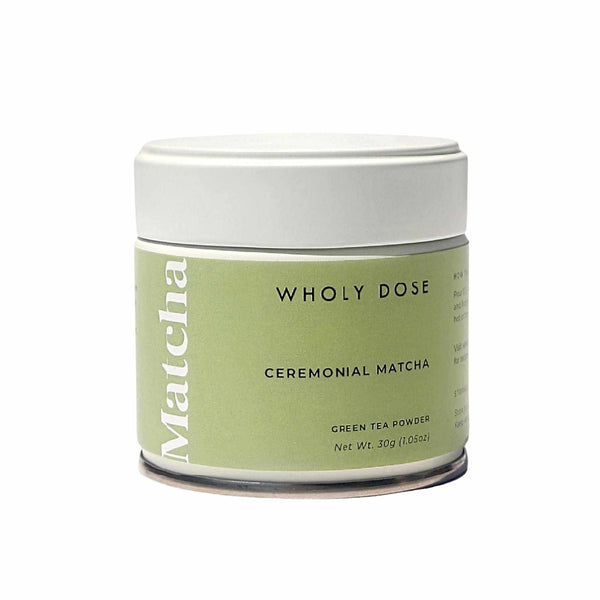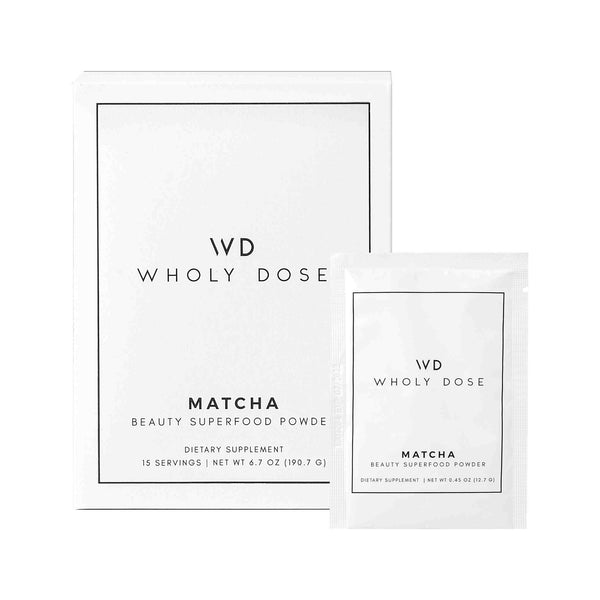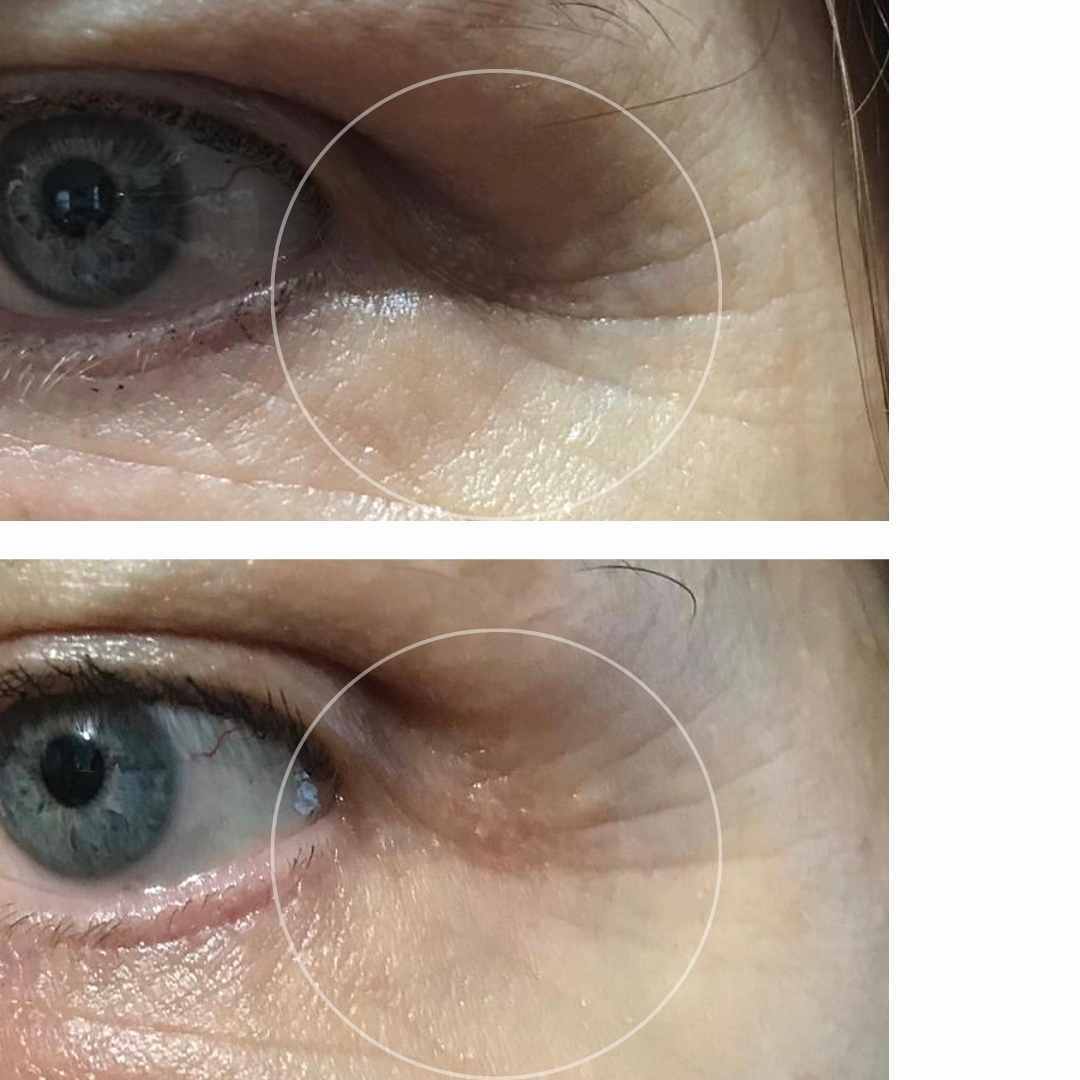
Biotin vs. Collagen: What’s the Difference?
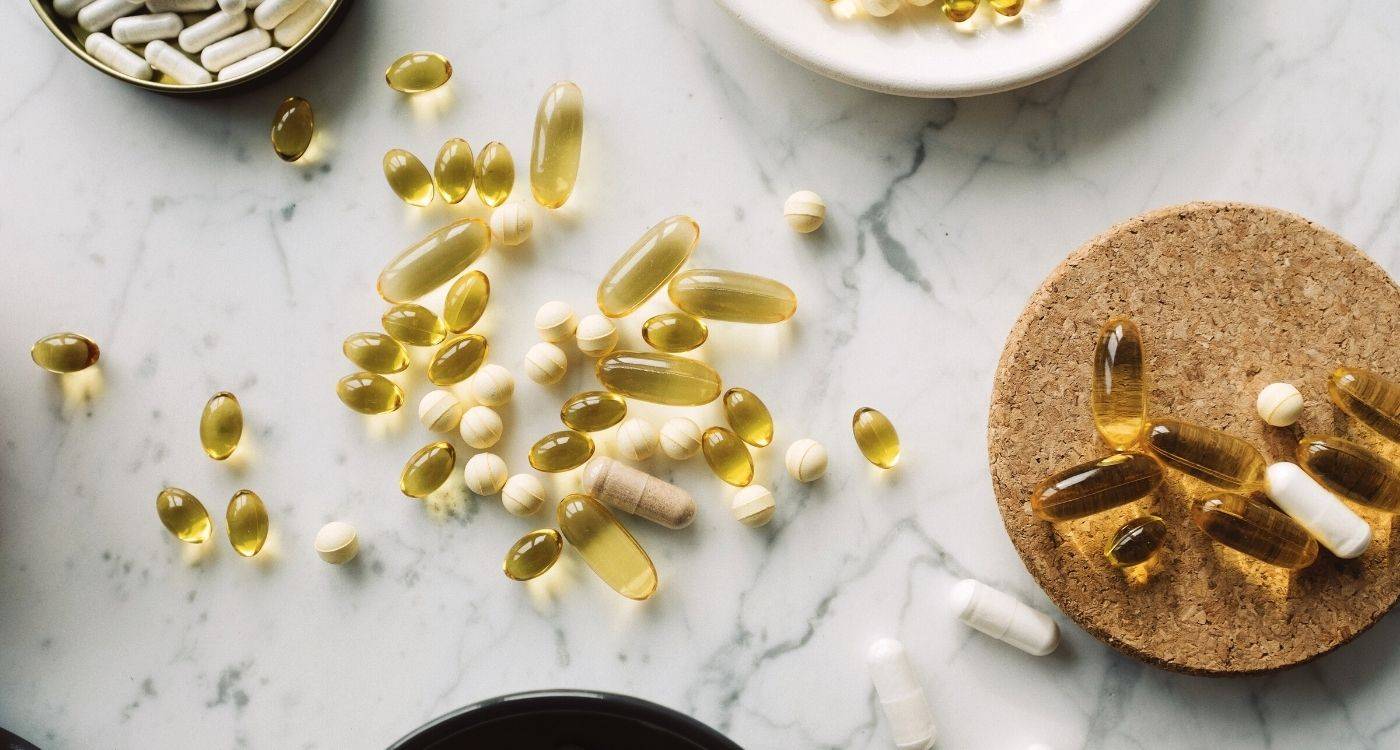
Do collagen and biotin supplements really work? Read more to find out what they are, how they work to give you healthy hair, skin, and nails, and what doctors have to say about these now popularized supplements.
Shopping For Collagen And Biotin Supplements
Among the many supplement products that aim to improve your joints, increase brain power, reduce inflammation, and add to your overall health – there are also what many are now calling 'wonder pills' for your hair, skin, and nails, also known as collagen and biotin supplements.
If you’re wondering about the difference between collagen and biotin supplements, and whether you should be taking them separately, combined, or at all, keep reading.
What Is Biotin And The Benefits?
Biotin is another word for vitamin B7.
According to Dr. Rajani Katta MD, a Houston-based dermatologist and author of Glow: The Dermatologist’s Guide to a Whole Foods Younger Skin Diet, some people may have a biotin deficiency if they are taking antiepileptic medications.
Eating a large amount of raw egg whites can also cause a deficiency in biotin, because avidin, the protein content found in raw egg whites, binds to biotin which reduces the body's ability to absorb it.
There are also genetic biotin deficiencies, Katta explains, which can cause hair loss, red, flakey rashes, and brittle nails. Other factors that cause biotin deficiencies include smoking, excessive alcohol intake, and pregnancy.
Because biotin can be produced by bacteria in the intestine, some people who have conditions that affect the bacteria in their intestines may also develop a biotin deficiency, states Dr. Katta. "Inflammatory bowel disease, small intestinal bacterial overgrowth, and other conditions might affect the balance of microbes in the intestines and thus may increase your risk of biotin deficiency".
Another fact is that biotin deficiencies can often lead to hair loss, weak nails, skin rashes, and other problems which may be why supplement companies began adding it to skin, hair, and nail supplements, says Dr. Katta.
Should You Take A Biotin Supplement For Better Hair?
A number of doctors say there is little evidence that supplementing biotin can help if you don’t have a deficiency, like Dr. Katta. But there are many other doctors who recommend taking biotin to support stronger, healthier hair and to help with hair loss issues – along with a number of studies indicating improvement in brittle nails and hair health from taking biotin supplements.
It’s important to be mindful of potential side effects, the biggest one being that large doses of supplemental biotin can interfere with medical lab tests, such as tests for thyroid values and tests for heart attacks, Dr. Katta says.
“Apart from that, extra biotin does not seem to cause side effects in most people, although some people have reported digestive upset,” she says. “However, we also don’t understand exactly how large doses affect insulin function and blood sugar levels in different people, so that is an area that definitely needs further research.”
What Is Collagen And The Benefits?
Collagen is the protein responsible for the cushion in your joints, plumping of your skin, and the strength in your bones, hair, nails, and more.
Collagen works in the following ways. When you consume or drink collagen, your body absorbs the protein and breaks it down into amino acids. Amino acids are the building blocks of pretend, and when joined with vitamin C, copper, and zinc, they create natural collagen in your body. You can find collagen in your body’s connective tissue, and in its extracellular matrix (the network of your body that gives structure to your tissues).
Most collagen in your body is types I, II, and III. Amy Gorin, a registered dietitian nutritionist and owner of Plant-Based Eats in Stamford, Connecticut, explains that Type I collagen is present in most connective tissues with bone, ligaments, tendon, and skin.” While, “type II collagen is found mostly in cartilage, and type III collagen is found in the skin, lungs, the walls of blood vessels, and intestinal walls.”
Food that has high levels of collagen includes bone broth and meat containing connective tissues. You can also consume collagen through collagen supplements – such as collagen pills or powders – like Wholy Dose collagen peptides powders.
So, why are collagen supplements becoming so popular?
Dr. Katta explains, “Collagen is a very important structural protein that helps provide scaffolding and support to your skin, and as you age, your collagen starts to break down and your body doesn’t produce it at the same rate. This is one of the reasons that supplement brands started putting it in supplements—there’s a hope that if you eat it, your body can use it to make new collagen.”
Should You Take A Collagen Supplement For Better Skin, Hair, And Nails?
The answer is, yes!
Collagen supplements are broken down into collagen peptides, or hydrolyzed collagen – this means that its bioavailability is greater, allowing your body to more easily and effectively absorb it into its system.
Your body’s natural collagen levels start decreasing as you get older. While this is a natural system of our body’s aging process to reduce its collagen production, your body still needs the same levels of collagen to give you the appearance of your skin, hair, and nails that you once experienced in your 20s.
As your collagen levels decrease, you experience the natural signs of aging such as fine lines, wrinkles, thinner hair, joint pain, muscle soreness, and more.
This is where collagen supplements come in – they supplement the natural collagen levels your body already produces by boosting the levels where your body lacks. Once collagen gets digested and absorbed by your body, it enters the bloodstream and goes where it is needed. In short, every body is different and lacks collagen in different areas – hence, it goes where it is needed.
GET HEALTHIER HAIR, SKIN, AND NAILS WITH WHOLY DOSE
PREMIUM COLLAGEN + BIOTIN SUPPLEMENTS
Are Collagen Supplements Safe To Take?
Collagen supplements are for the majority safe. However, if you are pregnant breastfeeding, taking medication or experiencing other health concerns, it is always best to consult with a doctor before taking any supplement.
Supplements are also not regulated by the FDA, so you need to make sure that you do your own research when it comes to the sourcing and quality of your supplements. Wholy Dose, for example, is responsibly and sustainably sourced, using only high quality ingredients that are clean, and safe for you. This is an essential aspect of finding a collagen supplement that is not only effective, but trustworthy.
Can You Take Collagen And Biotin Together?
Yes!
Collagen and biotin supplements can be taken together and are recommended if you are trying to grow your hair out, thicken eyebrows, lengthen eyelashes, fight hair loss, or have brittle breaking nails.
The two ingredients are scientifically-proven to work better – to provide better hair and nail results – when you take them together as opposed to separately. Collagen and biotin supplements, like Wholy Dose powders, provide your body with a boost in collagen and vitamin B7 for healthier hair, skin, and nails, as well as more energy and a stronger immune system.
Can You Use Topical Biotin And Collagen Products?
You’ve probably seen shampoo, conditioner, and other hair products containing biotin and collagen that promise to to promote long, thick, and voluminous hair. But, don’t be fooled by the pretty packaging or their marketing lingo.
“Collagen is such a large molecule, so I wouldn’t expect it to be absorbed through the hair or skin and thus wouldn’t recommend it either for hair products,” Dr. Katta says. Many other doctors and dermatologists say stay away from topical products that contain collagen or biotin because they simply do not work like they say they do.
As mentioned before, collagen supplements are broken down into a hydrolyzed state, making them highly bioavailable to be absorbed by your body through ingestion. The molecular structure of collagen is too large to penetrate through the outer layers of your skin, making it impossible for your body to absorb topically.
Biotin on the other hand, will not have the same effects when you apply it topically compared to ingesting it. Biotin supplements enter your gut and bloodstream to provide your body with the nutrients it needs for healthier and stronger hair and nails, as well as increased energy production. When you use a biotin shampoo or conditioner, it cannot do that.
So, if you have experienced some type of benefit from using collagen or biotin topical products like shampoos, conditioners, or creams, that's most likely due to the other active ingredients in the product.
Stick with a collagen and biotin supplement to keep your hair, skin, and nails healthy, strong, and glowing.

